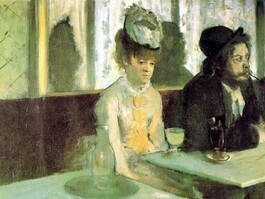Learn by doing
January 21, 2026
I've often heard the words, 'I can't write' and 'I'm not a writer'.I have always believed that where there is will, there is way. We learn by doing.It's true that our craft can be learned, the nuts and bolts like punctuation, sentence structure, vocabulary, and reading alot ...
Poppy the scaffolding cat
January 16, 2026
My neighbour's cat Miss Poppy has a new vocation.So taken is she with the scaffolding surrounding the house (while they replace the roof), that she is now considering a career change. This morning I looked up from the kitchen counter to see her balancing along the metal...
The new year hydrangeas
January 7, 2026
Every summer the hydrangeas do whatever they want.Sometimes they are blue, or white, purple or this divine red-wine coloured bloom. I never know what I'm going to get and it's always a delight. These lovely ones are growing next to the steps into the Writing Place, providin...
The old farmhouse
December 29, 2025
Since posting a Blog about the Christmas revellers passed out on the back yard of the old farmhouse, I've had a couple of readers wanting to know more about the place that my parents bought in Torbay, north of Auckland. The photo shows the house tucked away in the bush with ...
T'was the day after Christmas ...
December 27, 2025
.... and all across the lawn, revellers were strewn, exhausted and wan. There was a notable Christmas one year when we had overseas visitors staying. The event was celebrated with much festive cheer of the liquid sort.We were living in Torbay...
The Christmas of the guitar
December 22, 2025
I was 13 years old when I expressed my wish for a guitar. I was relentless. It was one of my trademark superpowers, to nag and remind and declare my desires over and over until I wore my parents down.Well, it was approaching Christmas that year, and I was holding out hi...
Christmas was Mom's favourite
December 18, 2025
Mom loved Christmas. This photo was taken one Christmas morning. My sister had given her this hat. In her later years, Mom delighted in just opening gifts, didn't really matter what was inside (as evident from the hat ...). It was the opening, the reveal, the 'oh goodn...
A challenge for Santa this Christmas
December 18, 2025
Santa may have a hard time finding his way into my Writing Place this Christmas, thwarted by miles of scaffolding as they work to replace the roof. Navigating one's way through the maze is a daily challenge, being careful not to bump heads and elbows, and carrying groceries ...
Dealing with rejection
November 21, 2025
This painting by Edgar Degas, L'Absinthe, resonates with me. After receiving a rejection note from an editor, 'Thanks but no thanks', how often do we put on our fancy hats, go out for a drink, and sit, slump shouldered, as we ponder our perceived failure?I had my first rejec...
The view from my place
November 14, 2025
I'm so used to seeing an extinct volcano from my place that I don't really notice it most days. However, when I welcome overseas visitors, they will often comment on Rangitoto's distinctive shape, and enquire if it has blown up recently.Rangitoto is one of the youngest volca...
